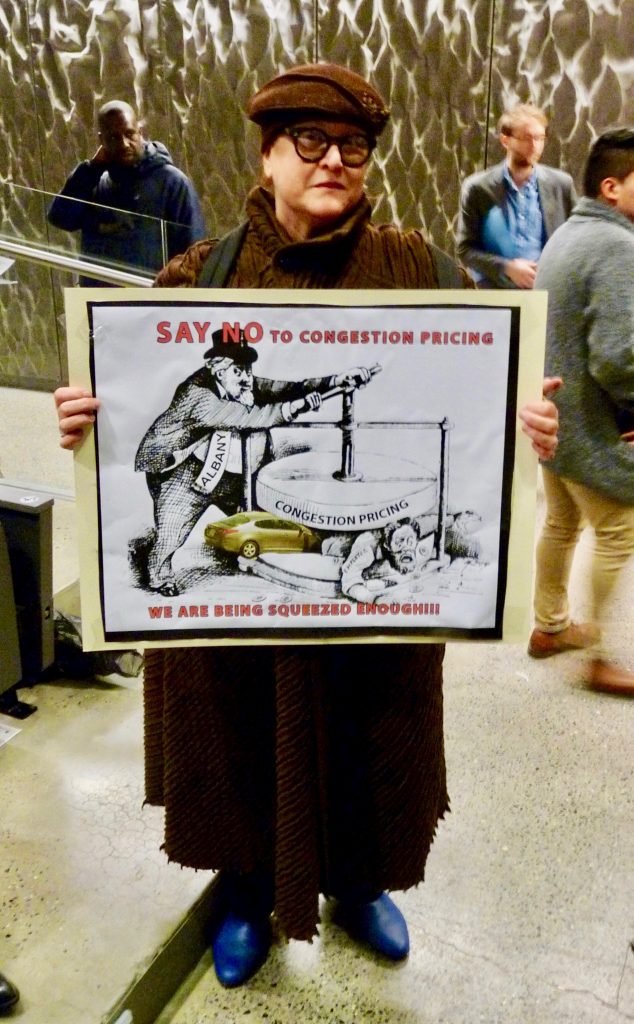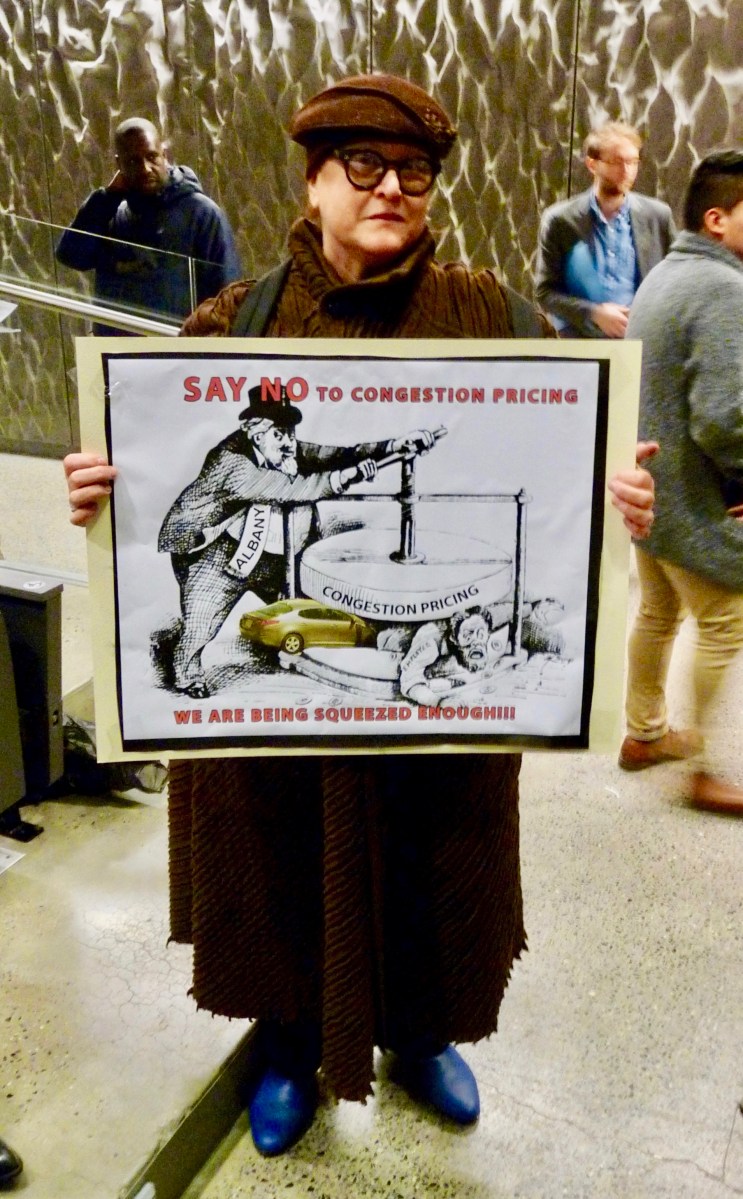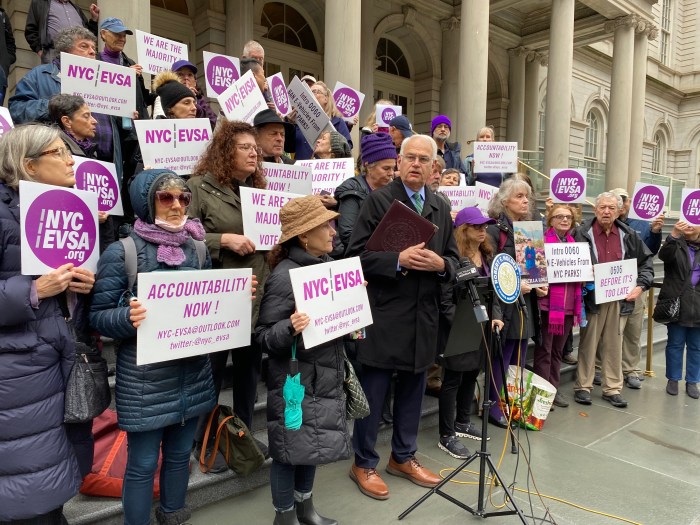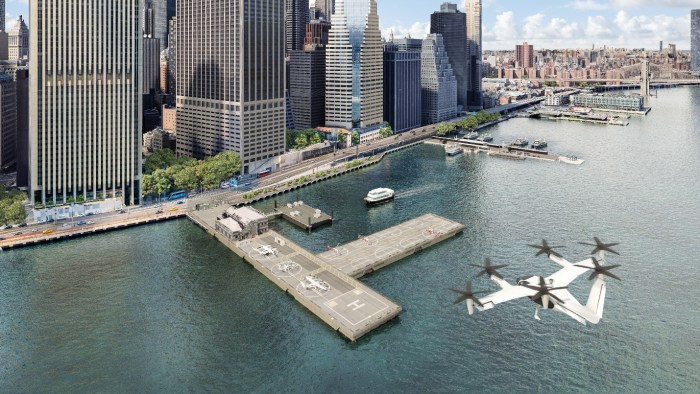BY GABE HERMAN | At a March 21 public hearing on congestion pricing, hosted by Manhattan Borough President Gale Brewer, there were a range of opinions for and against.
The plan would include a surcharge for vehicles going below 60th St. in Manhattan, and prices could vary by time of day and type of vehicle. The plan would raise an estimated $1 billion annually that would be invested in the city’s public transportation system.
Local politicians at the event, held at The Cooper Union, included Councilmember Carlina Rivera and state Senator Brad Hoylman, who, along with Brewer, said they were there to hear the opinions of the community.
Brewer noted she voted for congestion pricing in 2008 as a councilmember.
“And I would vote for it today, but only if the details are decided by the community,” she said.

“To be workable, there have to be some exemptions,” Brewer said, noting that people with disabilities, for example, should not have to pay the surcharge.
Rivera noted that traffic problems were harming New Yorkers’ health.
“We will have to make drastic changes to get to a point where we can breathe easier,” she stated.
“Mass transit is in serious crisis,” Hoylman said.
He noted how common it is for people to be late for work because of delayed travel.
“We have to change that because it’s bad for everyone,” he said. “It’s also bad for business.”
Hoylman said the Metropolitan Transportation Authority is projected to have $42 billion in debt by 2022, and that fares were projected to rise 27 percent if congestion pricing isn’t passed.
Yet, Hoylman expressed some concerns about the plan, and said Downtown residents should not have to pay to drive out of the area.
“You should not be penalized for living in the pricing zone,” he said to applause.
Hoylman said progressive taxes should be examined to fund mass transit, including a pied-a-terre tax. He said he wanted to look to the wealthy, “who haven’t paid their fair share.”
Former Assemblymember Richard Brodsky spoke adamantly against the plan. He called it a flat fee and said people should be taxed based on their ability to pay.
“I oppose congestion pricing as a matter of principle,” he said. Brodsky said the pied-a-terre tax and a tax on commercial real estate were better ways to raise money by taxing those benefiting from development booms.
When the floor was opened to public comments, one woman, Sheila Williams, said it was Uber and Lyft that caused the traffic issues.
“Now you want all of us to pay for this debacle,” she said.
A resident of Gateway Plaza, Audrey Kaminsky, said she has to drive to work and the zone seemed arbitrary in penalizing people in the southern part of Manhattan. Several other locals made the same point.
A resident of E. Fifth St., Louise Millmann, held a sign before the meeting stating that she was against congestion pricing that read, “We Are Being Squeezed Enough!” She told this newspaper that she has to drive to Long Island for work and so already pays two tolls.
“They want me to pay another and that’s not fair,” Millmann said, indignantly.
Christine Berthet, co-founder of a pedestrian-advocacy group, CHEKPEDS, said London has had fewer vehicle crashes with its congestion pricing, which it started in 2003. She said congestion pricing increased safety for all drivers, plus saved time for commuters.
“These are real savings and real benefits,” Berthet stressed.
A woman with the nonprofit Bike New York said the group supports congestion pricing because it would benefit cyclists by creating more space on the streets and better traffic flow. She said London saw bicycle use nearly double in three years after it started congestion pricing there.
“This is an opportunity to make bikes safer and more accessible,” she said.
Several speakers wanted exemptions for two-wheel vehicles, like motorcycles and electric scooters.
Eric Ramirez said motorcycles would reduce congestion and pollution. He cited a European study showing that if 10 percent of drivers switched to motorcycles, there would be a 40 percent reduction in congestion.
Christine Negra, an environmental scientist and motorcycle owner, said the two-wheel vehicle benefits included better fuel efficiency and lighter weights, which would mean less wear and tear on roads. She also noted that, compared to cars, motorcycles’ smaller sizes take up less space on roads and for parking.
“Two-wheel vehicles, I think, are part of the solution to urban congestion,” she said.


































